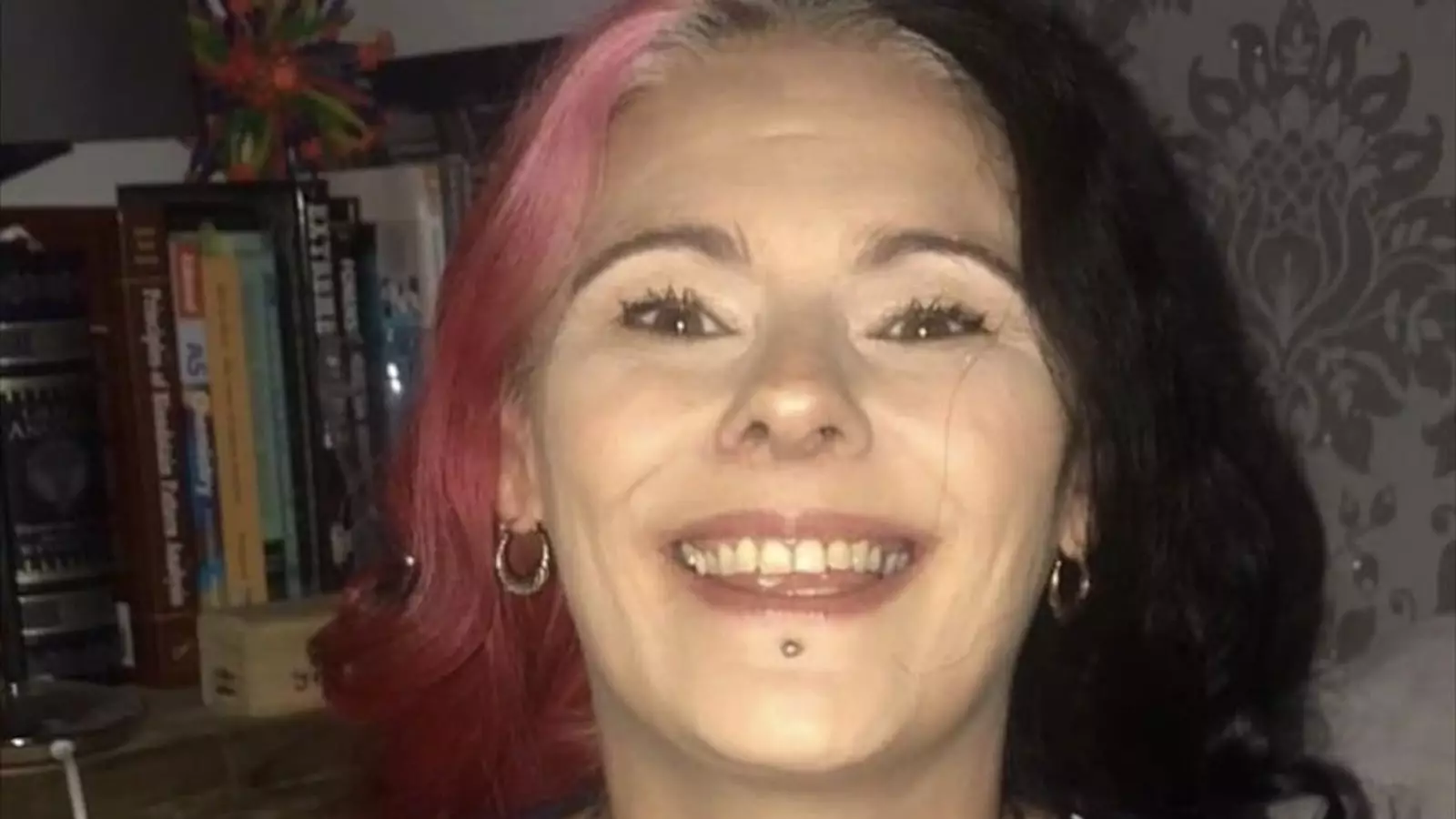In the delicate tapestry of familial relationships, the role of an aunt often embodies joy, laughter, and unconditional love. For Sam Cook, her sister Paula Parretti was that vibrant uncle—a beacon of light whose spirit radiated in every memory they created together. A photograph of Paula, showcasing her playful decision to color half of her hair bright pink, encapsulates the essence of a fun-filled relationship. “She would always be present for my children, indulging them in the noisiest toys and letting them have all the fun,” reflects Sam. A loving aunt, Paula was not just a relative; she was a vital source of happiness in their lives.
However, the harsh reality of Paula’s struggle with mental health led to a tragedy that echoed through her family, altering their lives forever. In January 2022, Paula’s vibrant smile was extinguished, leaving behind a painful memory that haunts those who loved her. “I want to remember her beautiful face, but all I see is the last image,” Sam reveals, sharing the devastating moment of discovery when she found her sister in her flat. That image haunts not only Sam but also the essence of what mental health issues can inflict upon families and loved ones.
One of the most critical aspects of Paula’s narrative was the glaring disconnect between her needs and the actions of the healthcare system. Just weeks before her death, Paula had been released from a hospital despite clear signs of distress. Sam recalls the moment sharply, noting how Paula’s bags were unceremoniously dropped at her feet with the blunt remark, “You’ve got to take her home, we need the bed.” Instead of receiving understanding and compassion, Paula was met with a disturbing lack of empathy as she experienced a panic attack. “Nobody listens,” Paula lamented, a haunting mantra that encapsulated her despair.
This scenario is not unique; countless families share stories of loved ones who fell through the cracks of an overwhelmed mental health care system. Sam Cook is set to bring such stories to the forefront as one of the first relatives to testify at a public inquiry into the deaths of mental health patients in Essex, known as the Lampard Inquiry. With more than 2,000 deaths on the table, many of whom resonate with Paula’s plight, this inquiry aims to shed light on systemic failures that contributed to these tragedies.
Sam’s determination to fight for her sister’s voice to be heard epitomizes the struggle many families endure while navigating mental health care. After Paula’s death, she made a promise to herself—to advocate for change in a system that often silences the very people in need. Sam has become an outspoken advocate against the neglect that too many families face. “It’s time to make our voices heard. It’s time to let people know these aren’t just statistics; these are real people with families, loves, and lives worth saving,” she asserts with fierce resolve.
Her efforts extend beyond her family; after sharing her story on social media, she received an outpouring of support from individuals across the country facing similar challenges. The voices of the disheartened and neglected echoed her sister’s experiences. “It’s not just my sister,” Sam states. “It’s a nationwide concern. People feel powerless and unheard.”
At the heart of Sam’s mission is a simple yet profound truth: mental health issues do not diminish a person’s value. They are mothers, fathers, brothers, sisters—individuals deserving of respect and dignity. The stigma surrounding mental health often leads to a lack of compassion and understanding, leaving families to navigate their grief in silence. Sam’s message is clear: mental health patients should not be seen as less than human simply because they struggle; they are loved ones whose lives are valuable.
As families rally around this cause, there remains a crucial need for systemic change in how mental health care is approached. Organizations such as Samaritans offer support for those in distress, emphasizing the importance of reaching out for help. In the end, it is about ensuring that every voice, every life, and every story matters—and that the pain of loss spurs necessary change rather than desolation.


Leave a Reply